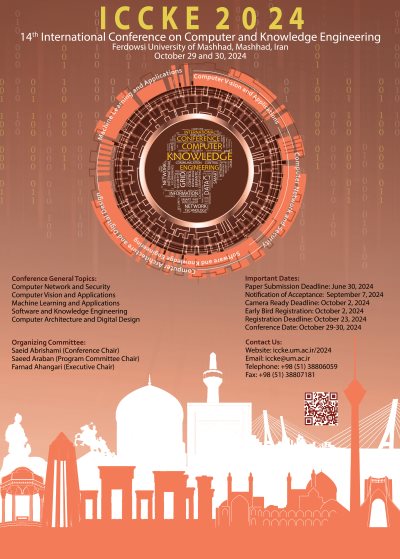0% Complete

Authors :
Keywords :
Abstract :
List of archived papers
Ervin Gubin Moung - Pavindrah Naidu a/l Narayanasamy Naiidu - Maisarah Mohd Sufian - Valentino Liaw - Ali Farzamnia - Lorita Angeline
Mahshad Hashemi - Eghbal Mansoori
Niloofar Alizadeh - Behnam Asghari Beirami - Mehdi Mokhtarzade
Fakhroddin Noorbehbahani - Nikta Akbarpour - Mohammad Reza Saeidi
Mitra Esmaeili - Hamed Vahdat nejad
Seyedeh Somayeh Fatemi Nasab - Davoud Bahrepour - Seyed Reza Kamel Tabbakh
Ali Salmasi - Ehsanollah Kabir
Arash Nasr Esfahani - Hamed Hosseini - Mehdi Tale Masouleh - Ahmad Kalhor - Hedieh Sajedi
Keyvan Asefpour Vakilian




